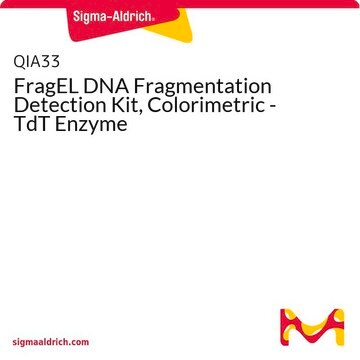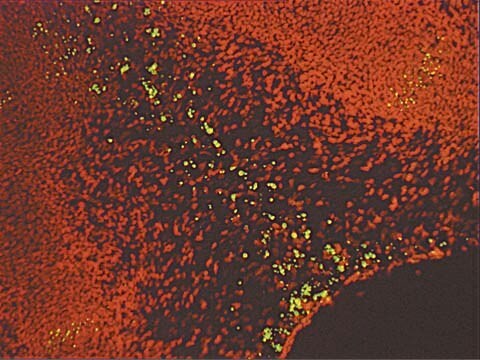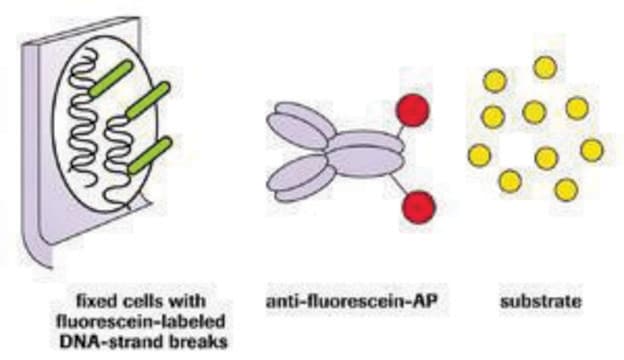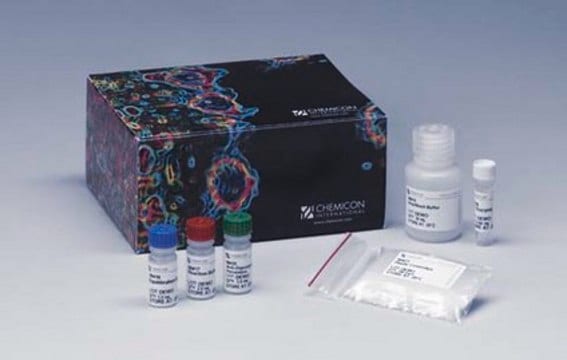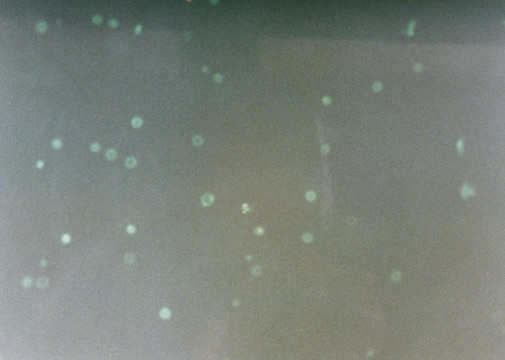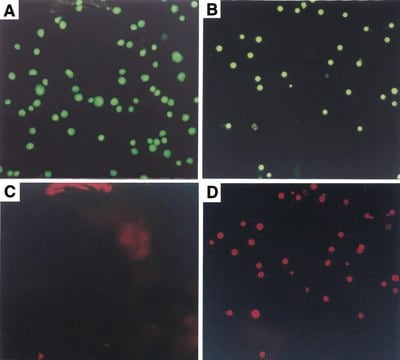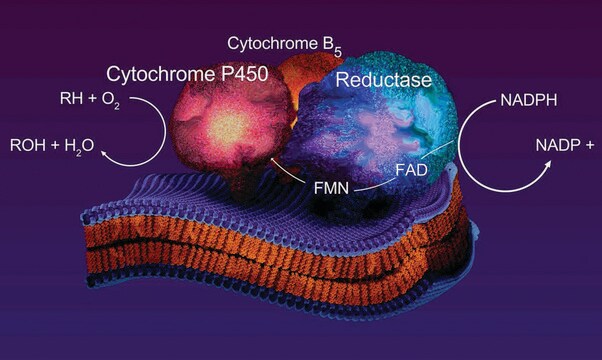QIA39
FragEL DNA Fragmentation Detection Kit, Fluorescent - TdT Enzyme
Synonym(s):
TUNEL Assay
About This Item
Recommended Products
usage
sufficient for 50 tests
Quality Level
species reactivity (predicted by homology)
all
manufacturer/tradename
Calbiochem®
storage condition
OK to freeze
avoid repeated freeze/thaw cycles
technique(s)
flow cytometry: suitable
input
sample type cell suspension(s)
sample type frozen section(s)
sample type paraffin section(s)
sample type fixed-cell preparation(s)
detection method
fluorometric
shipped in
wet ice
storage temp.
−20°C
General description
Components
Warning
Specifications
Principle
Storage and Stability
Other Notes
Frey, T. 1997. Cytometry28, 253.
Shapiro, H.M. 1995. Practical Flow Cytometry, Third Edition. Wiley-Liss Inc., New York, New York.
Darzynkiewicz, Z., et al. 1992. Cytometry13, 795.
Gavrieli, Y., et al. 1992. J. Cell Biol.119, 493.
Fawthrop, D. J., et al. 1991. Arch. Toxicol.65, 437.
Martin, S.J., et al. 1990. J. Immunology145, 1859.
Wyllie, A. H. 1980. Nature284, 555.
Kerr, J. F. R., et al. 1972. Br. J. Cancer26, 239.
Legal Information
Signal Word
Danger
Hazard Statements
Precautionary Statements
Hazard Classifications
Acute Tox. 4 Inhalation - Acute Tox. 4 Oral - Aquatic Chronic 2 - Carc. 1B - Eye Irrit. 2
Storage Class Code
6.1C - Combustible acute toxic Cat.3 / toxic compounds or compounds which causing chronic effects
Certificates of Analysis (COA)
Search for Certificates of Analysis (COA) by entering the products Lot/Batch Number. Lot and Batch Numbers can be found on a product’s label following the words ‘Lot’ or ‘Batch’.
Already Own This Product?
Find documentation for the products that you have recently purchased in the Document Library.
Customers Also Viewed
Our team of scientists has experience in all areas of research including Life Science, Material Science, Chemical Synthesis, Chromatography, Analytical and many others.
Contact Technical Service